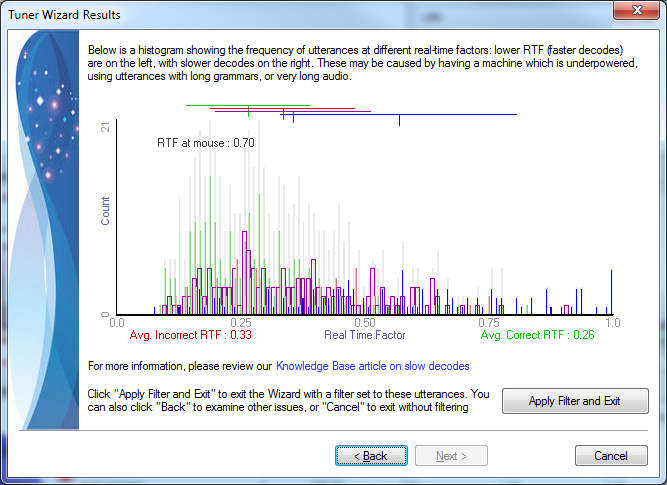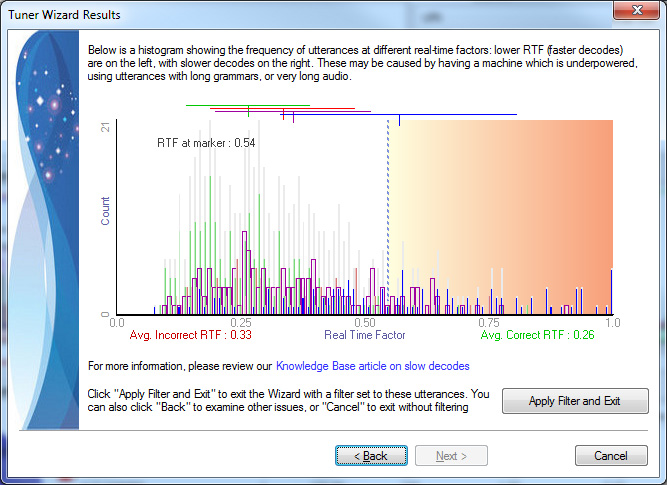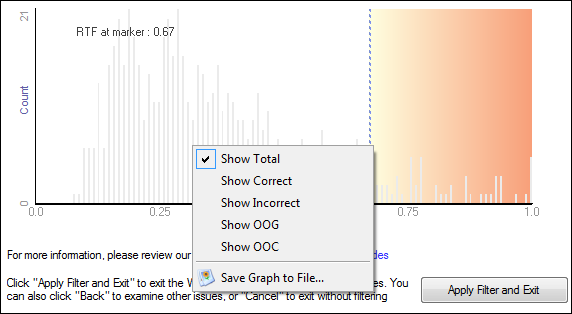Slow decodes refer to cases where the ASR took longer than expected to provide a result. Decode speed is measured in terms of real-time factor (RTF), which is the ratio of decode time to audio length. So an RTF of 0.5 indicates that 1 second of audio would take 500 ms (0.5 seconds) to decode. The lower the RTF, the faster the decode is happening. You can use the Tuning Wizard to highlight and identify menus and utterances which had unusually high decode lengths.

RTF Histogram
The result of the Slow Decode Wizard is a histogram similar to our confidence histogram, in that it provides an analysis of speeds for correct, incorrect, OOG, and OOC utterances. Along the horizontal axis (X-axis), faster decodes (those with lower RTF values) are along the left side of the graph; slower decodes (higher RTF) are toward the right. The height of each bar (Y-axis) indicates the frequency of an answer type at that RTF value.
Filtering to Specific Utterances
By clicking anywhere in the RTF Histogram, you can drop a marker and select all the utterances to the right of that marker (i.e. all utterances slower than the RTF value at that marker):

Selected utterances are indicated by the gradient shown in the picture above. When you click Apply Filter and Exit, the Tuner will filter to just show utterances you have selected (if nothing is selected, then no filter is applied).
The histogram displays five categories:
- Green bars are correct utterances.
- Red bars are incorrect utterances.
- Purple bars are out-of-grammar utterances.
- Blue bars are out-of-coverage utterances.
- Gray bars are the sum of all utterances.
By right-clicking on the histogram, you can choose to show or hide any or all of the series:

Improving Decode Speed
Decode speed is affected by a number of different factors:
- Size of the grammar, i.e. how many words are in the grammar
- Complexity of the grammar, i.e. how many possible parses can be generated
- The value of the speed vs. accuracy setting
- The hardware of the machine running the ASR, i.e. available memory, CPU speed, etc.
If you find decodes are much slower than expected, try simplifying grammars (remove unneeded grammar entries), increasing the speed vs. accuracy setting to favor speed over accuracy, or improving the
ASR server's hardware.